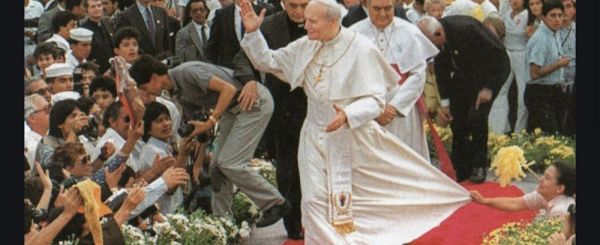3. “… even as the Son of man came not to be served but to serve” (Mt 20:28).
In truth, Jesus is the perfect model of the “servant” of whom Scripture speaks. He is the one who radically emptied himself to take on “the form of a servant” (Phil 2:7) and to dedicate himself totally to the things of the Father (cf. Lk 2:49), as the beloved Son in whom the Father is well pleased (cf. Mt 17:5). Jesus did not come to be served, “but to serve, and to give his life as a ransom for many” (Mt 20:28). He washed the feet of his disciples and obeyed the plan of the Father even unto death, death on a cross (cf. Phil 2:8). Therefore, the Father himself has exalted him, giving him a new name and making him Lord of heaven and of earth (cf. Phil 2:9-11).
How can one not read in the story of the “servant Jesus” the story of every vocation: the story that the Creator has planned for every human being, the story that inevitably passes through the call to serve and culminates in the discovery of the new name, designed by God for each individual? In these “names”, people can grasp their own identity, directing themselves to that self-fulfilment which makes them free and happy. In particular, how can one not read in the parable of the Son, Servant and Lord, the vocational story of the person who is called by Jesus to follow him more closely: that is, to be a servant in the priestly ministry or in religious consecration? In fact, the priestly vocation or the religious vocation are always, by their very nature, vocations to the generous service of God and of neighbour.
Service thus becomes both the path and the valuable means for arriving at a better understanding of one’s own vocation. Diakonia is a true vocational pastoral journey (cf. New Vocations for a New Europe, 27c).
[Pope John Paul II, Message for the XL World Day for Vocations, 11 May 2003]












